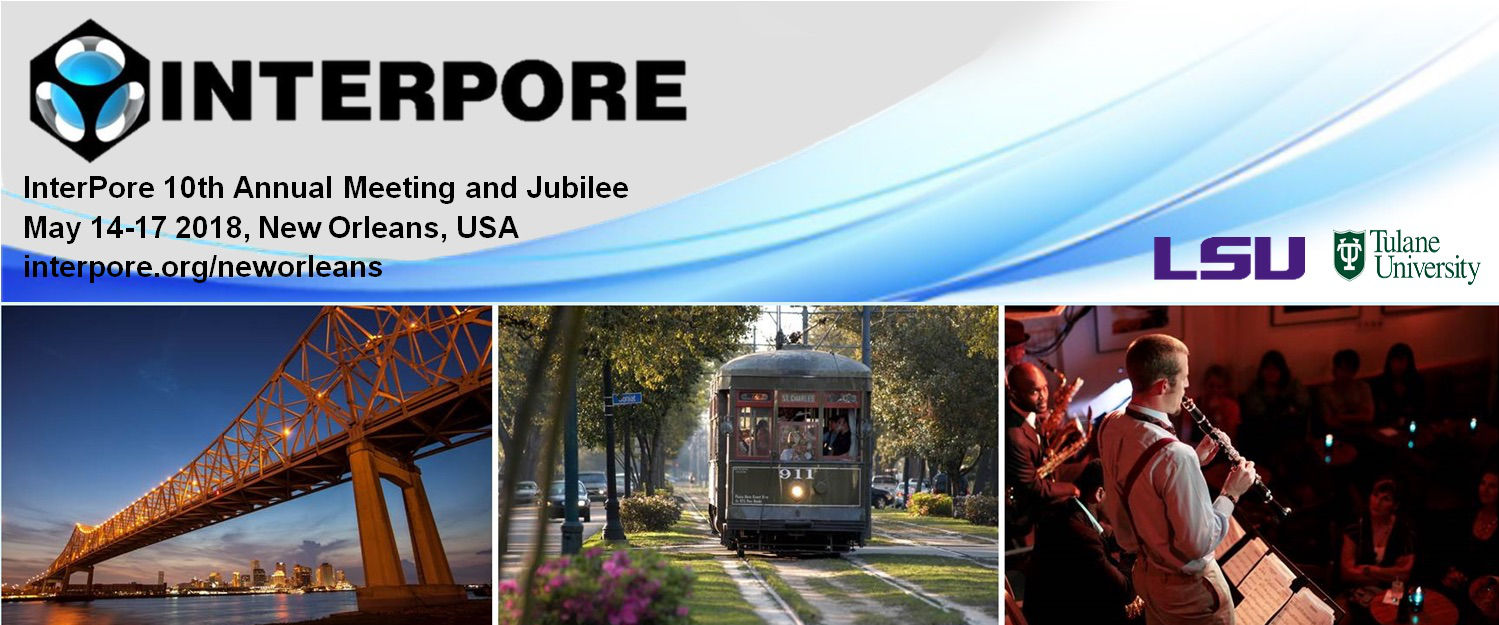Speaker
Description
This work develops the theoretical basis and practical application of a promising class of safeguarding strategy in the context of the solution of implicit timesteps for multiphase multicomponent flows in general.
While classic globalization methods such as the linesearch for sufficient descent are problem independent, they require numerous computationally costly evaluations of the residual system. Furthermore, they may overly conservative and result in small Newton updates. Developments over the past decade have cemented the efficacy of component-wise relaxation safeguards as an alternative to global search methods, particularly when the relaxation parameter can be deduced from heuristic arguments at constant cost. These methods however are problem specific in the sense that they require prior information about the nonlinearity of the numerical flux over the component space at hand. Recently, the ideas of these component-wise numerical flux analyses were generalized to systems of equations where in essence, a search procedure is used to determine a relaxation length. The result is a return to the need for an expensive search procedure involving numerous residual evaluations. In this work, the criterion for an admissible step along a Newton direction is abstracted; it may be a residual descent criterion, or a local Lipschitz estimate. We apply a discretization error analysis and local functional estimates to then compute the steplength that will satisfy this criterion.
The damping algorithm is based on viewing the Newton iteration as a forward Euler discretization of the Newton flow equations. Three a posteriori local discretization error estimates are derived; the first is an extension of the Poschka method to computably estimate the norm of the derivative of the Newton step with respect to step-length. This relatively costly estimate provides an accurate measure of the departure from the Newton flow path. The second estimate is based on Richardson extrapolation, and the third involves an extended Adams-Bashford method. We propose to control the Newton step length by limiting the estimated local discretization error. The control strategy is conservative far from the solution, and can be shown to result in the standard Newton method otherwise.
Computational results are presented for a series of simulation problems with increasing complexity. First, results for two phase flow simulations demonstrate that the proposed method is competitive with, but not superior to recently proposed trust-region based strategies. For thermal and multicomponent problems the method is compared to classic trust-region and line-search methods. Superior robustness and computational efficiencies are observed, and the iteration converges for significantly larger time-step sizes.
| Acceptance of Terms and Conditions | Click here to agree |
|---|


